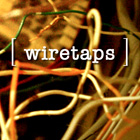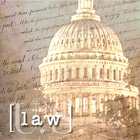
Article I, Section 1, US Constitution: First Amendment to the US Constitution: Fourth Amendment to the US Constitution: Seventh Amendment to the US Constitution:
|
THE NET WIDENS: WHAT ELSE ARE THEY MONITORING? NSA EXPERT HISTORIAN EXPECTS INTERNET COMPANIES ALSO COOPERATED WITH DOMESTIC SPY PROJECTS 17 May 2006 Historian and expert NSA researcher Matthew Aid has told Salon.com that he believes it will be revealed in time that Internet service providers and cellphone companies also cooperated with the NSA spying and data mining programs. He offered no proof, but cited past examples of NSA overreaching and the key fact that the article exposing the collaboration of 3 major telecoms failed to explore the complicity or innocence of cable, cellular and Internet companies. Aid is writing a comprehensive history of the NSA and has sources inside the agency, past and present. He noted that 30 years ago, as the nation was marking its bicentennial celebrations, the NSA scandal of the day was Project Shamrock, investigation of which had revealed that Western Union and other telephone and telegram companies had been passing information and content of communications to the agency, every day, for more than 3 decades. That shocking revelation led to the passage of the Foreign Intelligence Surveillance Act, in 1978, designed to ensure that court approval and constitutional procedures were engaged whenever a secret domestic surveillance operation were planned for national security reasons. The law, known as FISA, made it clear that certain limits on domestic surveillance were a key part of the constitutional checks and balances designed to protect against abuse of power. The law also put specific measures in place to prevent private businesses from reporting customers' private information to the government without a court order. According to Aid, the NSA did not conduct domestic surveillance between 1975, when the Shamrock operation was uncovered, and 2001, when the attacks of 11 September put pressure on the government to change practice. Aid noted the effective overhaul in executive thinking that came with the attacks: "Then 9/11 changed the entire equation, and Congress, in its rush to prove how patriotic it was, passed the Patriot Act, which gave the government unlimited powers to conduct surveillance in the US. Basic freedoms were abridged." The Bush administration took the new leeway it had been granted to be a kind of carte blanche to act independently of existing legal procedures. A new theory of constitutional law developed inside the White House, arguing that the president had near absolute discretion to apply the law, even to his own actions, as he saw fit, in order to conduct a war effort, seen in this case to be against terrorist cells, potentially within the US. One of the first plans pushed by the administration in its attempts to take advantage of the changed security and law-enforcement climate was the Total Information Awareness project, proposed by John Poindexter —of Iran-Contra fame— and operated through DARPA, a secret research arm of the Pentagon. The program proposed logging a permanent digital record of all communications of all kinds occurring within the US. When discovered by the press, Congress moved to block the program, specifically forbidding Pentagon funding from being directed to it. It was made clear the program was perceived to be illegal, but no law was passed precisely banning it, as a theory of practice. It is now thought that the TIA program was not entirely deactivated but was simply transplanted and conducted in a more diffuse manner, so as to make it less obvious. The Salon report mentions a new project at the NSA to monitor communications in "new media", known as Project Trailblazer. Aid says the project is wildly overbudget and has been delayed, so as such is not yet implemented, but Salon reports "Trailblazer is designed to copy the new forms of telecommunications -- fiber optic cable traffic, cellphone communication, BlackBerry and Internet e-mail traffic." Taking together the experience of past abuses and the likelihood that pressure was exerted on the telecoms to gain access to their records and their lines, coupled with deliberate circumvention of legal and oversight obligations, in light of TIA and Trailblazer, Aid speculates that the NSA has cast a wider net than has so far been revealed. He also cited the administration's legal reaction to the lawsuit by the Electronic Frontier Foundation against AT&T for violating federal law by cooperating with a warrantless surveillance program. The government responded by trying to quash the lawsuit on national security grounds. This came after the involvement of phone companies was already known —the issue central to the lawsuit— and after the nature of the eavesdropping program had been revealed, though not in all its detail. Aid believes the attempt to quash the lawsuit points to a much broader clandestine program, as yet unrevealed. [s]
BACKGROUND: The National Security Agency, which has been the center of a major legal controversy over its eavesdropping on law-abiding American citizens without judicial approval, has now been revealed to be collecting phone records of tens of millions of people. The effort is reportedly part of a strategy to amass a record of all phone traffic in the US, no matter its purpose. [Full Story] GOV'T DOCUMENTS SHOW SURVEILLANCE OF FAITH-BASED PEACE GROUP New information acquired by the ACLU by way of the Freedom of Information Act, shows the FBI and the Joint Terrorist Task Force have been monitoring, infiltrating and spying on innocent, law-abiding individuals and both non-religious and faith-based activist groups whose activities are entirely peaceful and are protected by the First Amendment to the US Constitution. [Full Story] AT&T SUED FOR VIOLATING LAW IN NSA DOMESTIC SPY PROGRAM AT&T was once the nation's telecommunications monopoly, and abuses there led to the break-up of the Bell monopoly and the regulation of telecoms, with the intent of encouraging competition and achieving the goal of forcing providers to serve the customers first. Now, the Electronic Frontier Foundation has filed a lawsuit alleging that the telecommunications giant has violated federal law by assisting the government in spying on innocent Americans without any court authorization. [Full Story] |
|||||||||||
|
||||||||||||

